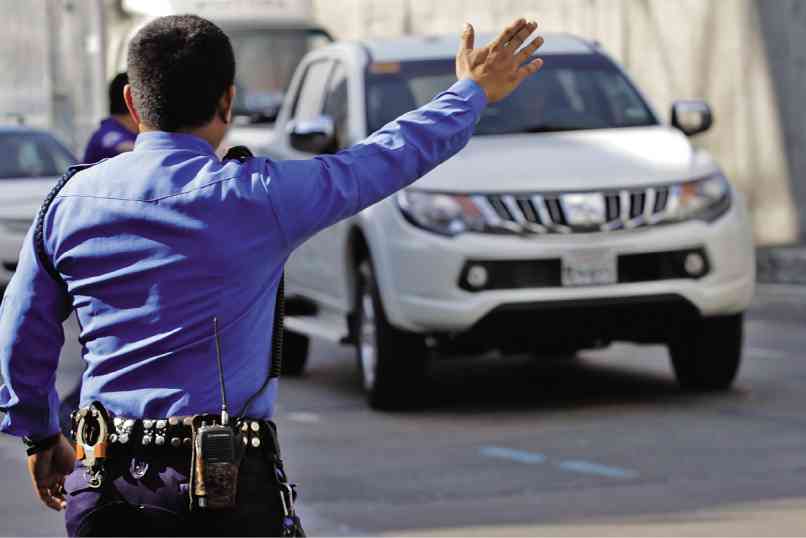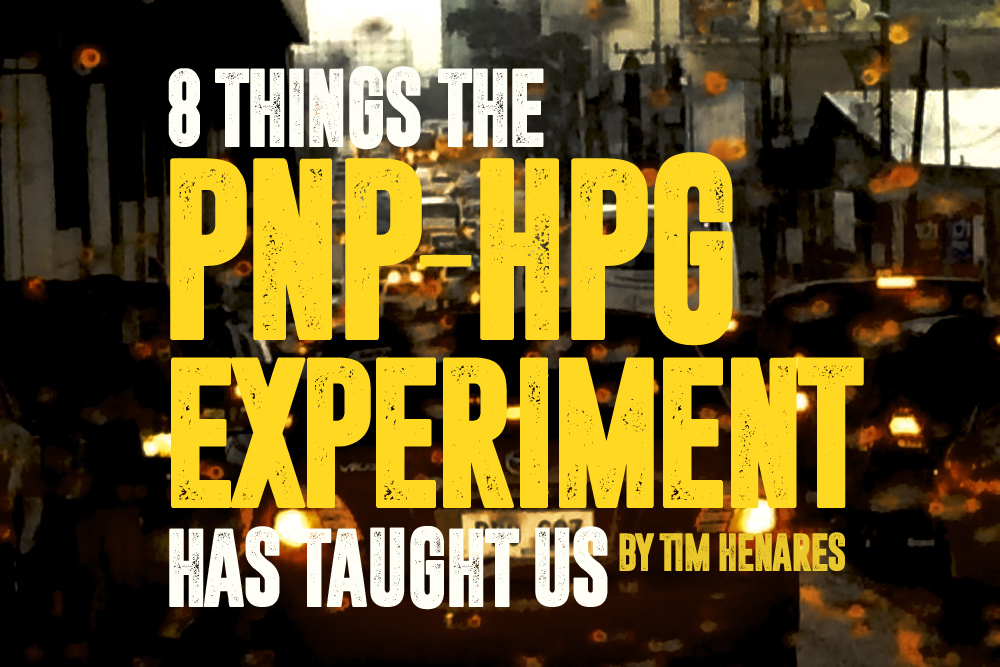8 Things The PNP-HPG Experiment Has Taught Us
Sep 22, 2015 • Tim Henares

Sep 22, 2015 • Tim Henares

The Philippine Star has established that the HPG experiment has proven a few things. Here are 8 more, on top of that.
Carpooling? Odd even? Nah. Just enforce the current law with ruthless efficiency, and make sure that PUV’s (who obviously can’t offer much in the way of bribes, hence generally ignored) are held accountable just as much as private vehicles are.
The minute it rained, all that traffic alleviation disappeared like the sun. There has to be a way to make sure traffic isn’t an automatic standstill in the middle of a mild drizzle, which is normally all it takes for all hell to break loose in EDSA again.
If our traffic enforcers actually, you know, enforce traffic (you had one job, guys! ONE! JOB!) as their job title suggests, we know the traffic situation can be better. The question is: what can be done to motivate these people to follow the letter of the law? A better salary? Stronger sanctions if caught taking a bribe?
GrabCar recently had to issue an apology for its recent spate of choosy drivers, which just put the whole “kontrata” system of taxis right in your phone. All the hassle and frustration, now in the palm of your hands!
There needs to be a better way to address these issues, because you can see a lot of GrabTaxi drivers on a given Friday night just going around in circles in the Glorietta area, just adding to the traffic, in hopes of finding either a huge tip or a very nearby destination they can make a killing on. How is this any better?
The Star editorial mentioned a very conspicuous case where the C5 Service Road in Taguig has become little more than a graveyard for eternally parked cars. What kind of “service” do we expect from this Service Road? The HPG is prioritizing EDSA. In doing so, C5 also takes a bit of a hit by default, and it’s exacerbated by this blatant display of inutility by whoever should be in charge of taking these cars out of the streets and into the junkyard.
We like rules that make our lives easier. We hate rules that inconvenience us. Nonetheless, when we encounter something that involves the latter, we think that somehow, we are above the rules, and we should get a pass. There will probably be a few laws that need to be drawn up to capitalize on the HPG’s momentum, but let’s look at ourselves the minute we start complaining because it’s bound to affect us adversely in some way.
If there’s one thing we can conclude from all of this, it’s that the HPG is only a baby step towards fixing the issue of traffic. After all, even in the most developed cities in the world, such as Los Angeles, London, and Paris, all find themselves mired in this very problem. From the underpaid and overworked traffic enforcers to the underemployed illegal street vendors, to the unscrupulous buses and colorums to the hard-headed jaywalkers and commuters, there is a great need for a change in the system and mindset that, sad to say, we aren’t quite primed for yet.
But just like our daily traffic through the heavy traffic in the metro, we’re getting there. Slowly. Very slowly. Any moment now.
What lessons have you learned from the PNP-HPG experiment on Manila’s roads? Sound off in the Comments Section below!
Input your search keywords and press Enter.
